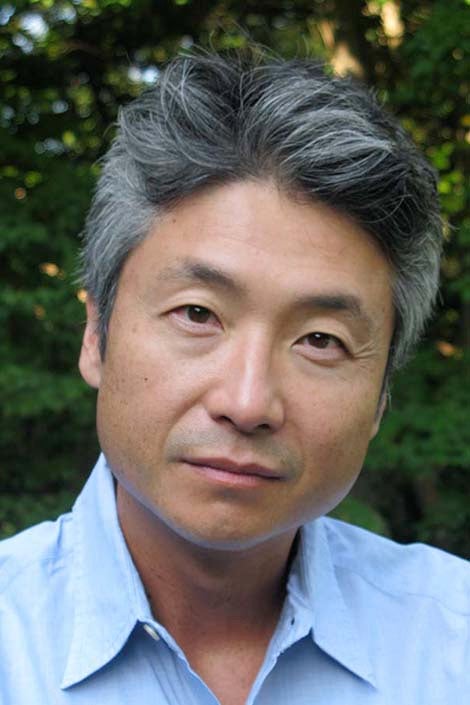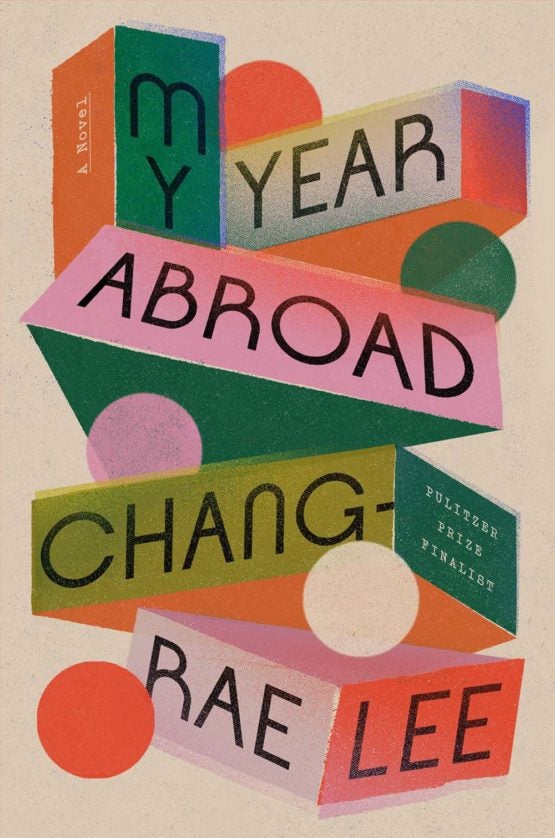English Professor Chang-rae Lee exercises a new muscle in his latest novel
The protagonist in Lee’s book My Year Abroad takes some inspiration from his work teaching college students.
Chang-rae Lee says he never wants to write the same book twice – so in his latest work, the critically acclaimed author tries out a different muscle.
Lee, who is the Ward W. and Priscilla B. Woods Professor in the English department in the School of Humanities and Sciences, published his sixth novel this month. My Year Abroad (Riverhead Books) is about a college student who goes on a trip around the world with a Chinese American businessman, as well as the domestic life the protagonist lives afterward. Lee says readers might be quite startled with this new novel.
“It’s a very different kind of book for me,” he said. “It has a different energy and voicings than some of my previous novels. But I think similar concerns endure.”
Lee’s books often explore topics of race, class and the immigrant experience. “For a quarter-century now, from book to book, he has explored the ever-urgent themes of alienation, assimilation and identity with unmatched assurance and acuity,” author Jhumpa Lahiri said in a press release for the book. “He has redefined not only what it means to be American, but also the fabric of the Great American Novel itself.”
He is especially well-known for his 1995 book Native Speaker, which won the prestigious Hemingway Foundation/PEN Award. His 2010 book The Surrendered was a Pulitzer Prize finalist for fiction. While My Year Abroad includes themes of seeking a sense of belonging and identity, it has a different rhythm and cadence than his other works. Usually, Lee writes with narrators or third-person perspectives with a quiet tone of circumspection. “This one is not that at all – it’s loose, riotous, profane, confused,” he said.
Lee, 55, says he was inspired by the college-age adults he’s had a chance to closely observe by virtue of being a professor at Stanford. The book’s young 20-year-old narrator, Tiller, is an amalgam of Lee’s experiences with his own students over the years, his daughters around that age and the person he was back then. But Tiller is not as “supercharged, confident or competent” as his Stanford students, Lee admitted. “He’s decidedly the opposite. But he has all these hidden capabilities and talents, which come out through the course of his travels.”
“I didn’t want it to be just a conventional adventure tale. Although I enjoyed those narratives, I also found them a little wanting,” Lee said. That’s why the book flips between being an adventure tale and a domestic drama, alternating storylines that explore questions like whether the hero is settled, how has he absorbed everything he experiences through his travails and what is he facing now. “I wanted to be sure to tell that other story, too.”
After Tiller’s travel adventure with a Chinese American entrepreneur named Pong, he reflects on his life a year later while settled down with a young mother and her son in a drab exurban town. The setting, as well as the fancier suburb Tiller’s from, were influenced by Lee’s own life. He moved with his family from South Korea to the United States when he was 3, and eventually grew up in the suburbs of New York City in Westchester County; he lived in Princeton before moving to California. “Suburbs are wonderful for a sense of security, stability, safety, but also they can be deadening, and deluding, in terms of what’s really going on in the world,” Lee said. “So that dance between comfort and safety – and being numb – is something that I’ve always been fascinated by.”
Lee says he wrote parts of the book during a time of transition in his life. After teaching creative writing at Princeton for many years, he had an opportunity to come to Stanford. Lee moved his family to the Bay Area and joined the Stanford faculty in 2016. “I think the newness in my life during this period perhaps also found expression in all the newness that Tiller experiences.”
Tiller’s character is 12.5 percent – or one-eighth – Asian. Lee said he wanted his protagonist’s heritage to be a source of curiosity but not a dominating theme. “I wanted it to be a small but constant feature in his life that doesn’t seem very important to him, but maybe is growing in importance.”
While My Year Abroad explores themes of mentorship, fear and loss, Lee says it boils down to a universal denominator. “There are so many things that it’s about, but ultimately: It’s just about life.”


